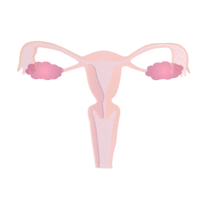Ovarian cancer has a mortality rate of up to 70%. This is partly due to the fact that the disease is rarely detected in its early stages because the symptoms are vague and nonspecific. Currently, there is no accepted screening method for ovarian cancer. Due to the mortality rate, physicians often counsel women at high risk to have their ovaries and fallopian tubes removed as a precaution. Jennifer Barton, director of University of Arizona’s BIO5 Institute wants to change all this. With $863,000 from the United States Army and nearly $500,000 from the NIH in research funding, her plans for a falloposcope that will detect early-stage ovarian cancer is moving forward.
Read MoreTags: biomedical research, Biotech Event, UAZ, Research Funding, NIH funding, NIH grant, University of Arizona Tucson, UA, cancer research funding, cancer research grant, ovarian cancer, BioResearch Product Faire™, Cancer Diagnostics, NIDA, BIO5 Institute
 Researchers from science institutions around the world study different forms of cancer, to gain better understandings of the diseases to assist with the development of new treatment methods. One of these cancers that is continuously being studied is ovarian cancer, which effects 1 in 75 women, according to the American Cancer Society. The University of Pittsburgh plans to further enhance ovarian cancer research opportunities with the establishment of a new research center dedicated to ovarian cancer and biology research. (Image courtesy of Wikimedia Commons)
Researchers from science institutions around the world study different forms of cancer, to gain better understandings of the diseases to assist with the development of new treatment methods. One of these cancers that is continuously being studied is ovarian cancer, which effects 1 in 75 women, according to the American Cancer Society. The University of Pittsburgh plans to further enhance ovarian cancer research opportunities with the establishment of a new research center dedicated to ovarian cancer and biology research. (Image courtesy of Wikimedia Commons)
Tags: University of Pittsburgh, UPITT, BioResearch Product Faire Event, New research center, ovarian cancer, 2018, Comprehensive Ovarian Biology Research Institute
 (Dr. Barton, researcher at the University of Arizona. Photo courtesy of U of A)
(Dr. Barton, researcher at the University of Arizona. Photo courtesy of U of A)
The National Cancer Institute is funding a million dollar study at the University of Arizona to help detect ovarian cancer sooner. It is hoped this project will lead to the first effective screening test for a disease that kills 14,000 women a year and often gives little to no warning of its presence until it’s too late.
Read MoreTags: University of Arizona, University of Arizona Tucson Research, Arizona, UAZ, Biotechnology Vendor Fair, Research Funding, Tucson, University of Arizona Tucson, UA, ovarian cancer, 2016, cancer reserach, Dr. Jennifer Barton, Optical imaging technology
 According to the National Cancer Institute (NCI), ovarian cancer accounts for approximately 3 percent of all cancers in women and is the fifth leading cause of cancer-related death among women in the United States. Ovarian cancer causes more deaths than any other female reproductive system cancer, due in part to a lack of symptoms during early stages and a lack of effective screening tests. In 2014, for example, an estimated 22,000 women were diagnosed with ovarian cancer in the United States, and approximately 14,000 died of the disease.
According to the National Cancer Institute (NCI), ovarian cancer accounts for approximately 3 percent of all cancers in women and is the fifth leading cause of cancer-related death among women in the United States. Ovarian cancer causes more deaths than any other female reproductive system cancer, due in part to a lack of symptoms during early stages and a lack of effective screening tests. In 2014, for example, an estimated 22,000 women were diagnosed with ovarian cancer in the United States, and approximately 14,000 died of the disease.
Tags: CA, University of California San Diego, cancer research, California, Cancer Treatment, Cancer, 2015, San Diego, SDVS, UCSD, Research Funding, UC San Diego, Biotechnology Vendor Showcase, NIH grants, ovarian cancer
With the support of a recently awarded $2.3 million NIH New Innovator Award, Pamela Kreeger from the University of Wisconsin, Madison will continue her research into what causes ovarian cancer in women to spread. Pamela Kreeger was one of 50 researchers to receive the prestigious New Innovator Award from the National Institutes of Health in 2014.
Read MoreTags: Midwest, Bioresearch, WI, University of Wisconsin Madison, UWisc, 2015, BioResearch Product Faire Event, Madison, NIH funding, ovarian cancer

